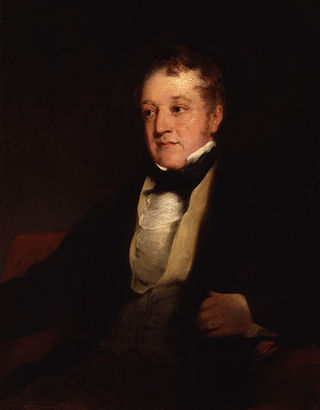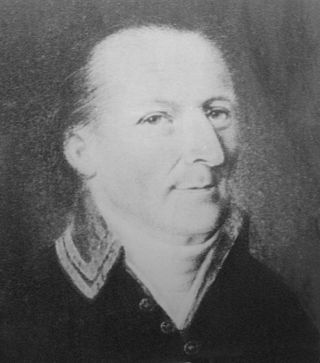
William Huskisson was a British statesman, financier, and Member of Parliament for several constituencies, including Liverpool.

William Wickham PC PC (Ire) was a British spymaster and a director of internal security services during the French Revolutionary Wars. He was credited with disrupting radical conspiracies in England but, appointed Chief Secretary for Ireland, failed in 1803 to anticipate a republican insurrection in Dublin. He ended his career in government service in 1804, resigning his post in Ireland where, privately, he denounced government policy as unjust and oppressive.
William Manning was a British merchant, politician, and Governor of the Bank of England.
The Legislative Council of Lower Canada was the upper house of the Parliament of Lower Canada from 1792 until 1838. The Legislative Council consisted of appointed councillors who voted on bills passed up by the Legislative Assembly of Lower Canada. The legislative council was created by the Constitutional Act. Many of the members first called in the Council in 1792 had served as councillors in the Council for the Affairs of the Province of Quebec.

The Randolph family of Virginia is a prominent political family, whose members contributed to the politics of Colonial Virginia and Virginia after statehood. They are descended from the Randolphs of Morton Morrell, Warwickshire, England. The first Randolph in America was Edward Fitz Randolph, who settled in Massachusetts in 1630. His nephew, William Randolph, later came to Virginia as an orphan in 1669. He made his home at Turkey Island along the James River. Because of their numerous progeny, William Randolph and his wife, Mary Isham Randolph, have been referred to as "the Adam and Eve of Virginia". The Randolph family was the wealthiest and most powerful family in 18th-century Virginia.

Louis-Emmanuel Jadin was a French composer, pianist and harpsichordist.

The Aliens Act 1793 was an Act of the Parliament of Great Britain regulating immigration into the country, in relation with the question of the French Emigration during the Revolution.
James Plumptre (1771–1832) was an English clergyman and dramatist.

Olof Samuel Tempelman was a Swedish architect and, from 1779, professor at the Royal Swedish Academy of Arts. He was appointed royal architect in 1799.
John King (1759–1830) was Under Secretary of State at the Home Office from 1791 and was briefly a Member of Parliament for Enniskillen in 1806.
William Augustus Miles was an English political writer. He was also a British agent in the years around the French Revolution.

Johanna Elisabeth Dahlén née Morthorst (1757-1845) was a Danish stage actress and opera singer. She belonged to the elite members of the Royal Danish Theatre between 1784 and 1827.
Sparrow was built in Bombay in 1777, possibly under another name. Between 1789 and 1798 Sparrow made several voyages as a whaler in the British southern whale fishery. In 1803 she was captured and recaptured. The French Navy captured and burnt her in 1806.